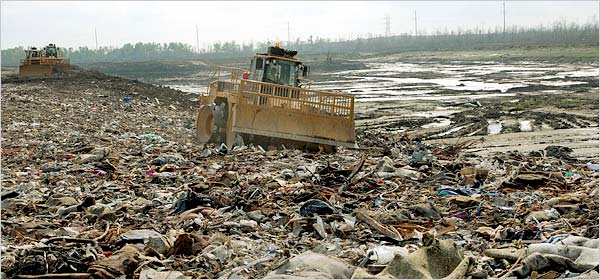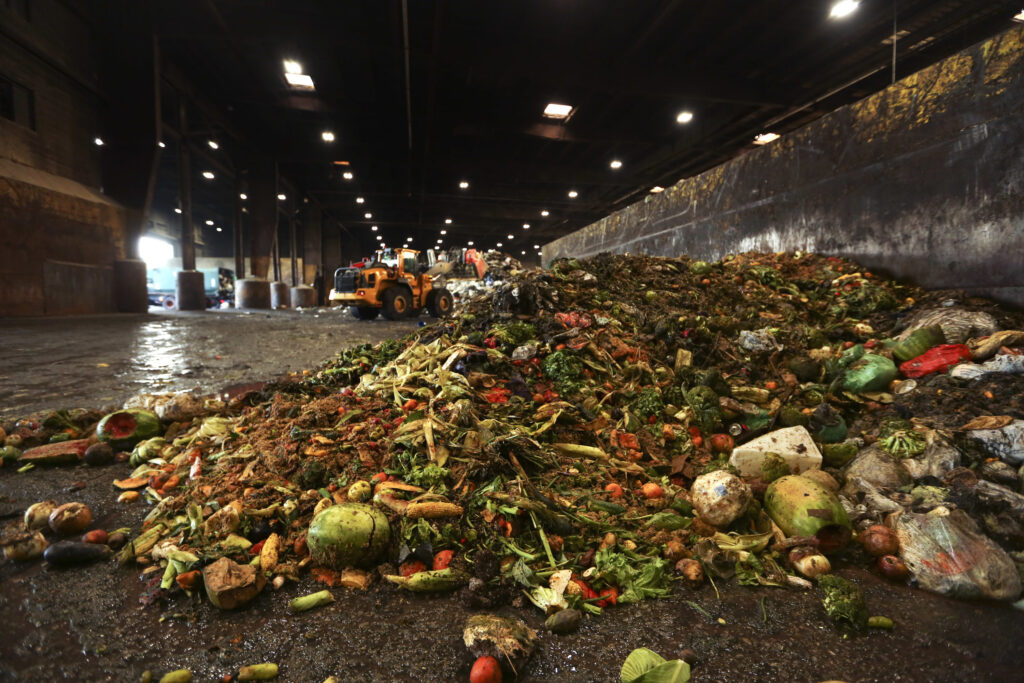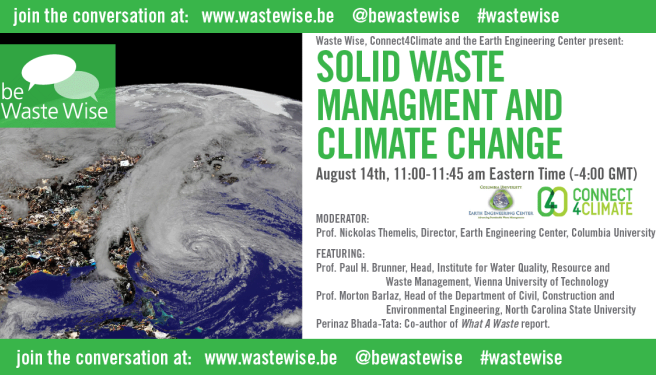Waste management risks

In the category of assimilable waste, we find waste from special household appliances: they cannot be collected or disposed of by the same path as regular household waste insofar as they represent a threat permanent for men. These products that we use become effectively toxic, corrosive, polluting, flammable or in any way generally harmful to the environment: for example, batteries, paints, solvents, drugs, used oil, etc.
Other type of wastes such as special household items are currently not collected, nor given any specific treatment. They are unfortunately dumped in the sink, in nature if they are liquid or thrown in the trash. They are therefore treated with regular waste, but, if they are landfilled, they risk polluting the water by infiltration, soil and air. In addition, they are collected with normal waste and if they are composted with it, they may disrupt fermentation and stop the microbial activity essential for the production of compost.
Beyond the real toxicity contained in this waste, the ignorance of users constitutes also a danger. There is probably a lack of information and education since very often the holders of these productsare not aware of the degree of toxicity of the product.
Green waste (lawn mowing, hedge trimmings, products prunings, etc.) are found in particular in large quantities after the passage of a cyclone. In general, they are either collected in at the same time as the bulky items, or they are collected and then composted on place or nearby. These wastes also have characteristics comparable to those of the fermentable material of regular household waste: (1) they ferment very easily, in particular thanks to the clippings, (2) when stored in a landfill, they produce many nuisances, like flow of acidic juices, (3) they burn quite badly because they are rich in water.
Material recovery of this waste type was therefore highly desirable because it contains organic matter. So, composting is an interesting solution because it makes it possible to obtain a fertilizer product for the soils and limit the quantities to be landfilled.
Next to this composting carried out on a platform, individual composting in the garden is therefore possible through an individual composter that the individual install at home. Nevertheless, even if families sort out putrescible materials (leftover meals, peelings …) to make compost, it only partially solves the problems of waste disposal. Indeed, most of the waste household appliances, the largest but also the most toxic, cannot be selectively collected.
Also, experts at dumpster rentals in Buffalo affirm that curbside recycling cannot be a solution in itself to solve waste problems, but, in order to be effective, it must find upstream in the production and distribution system of the product.
A compost bin can be install at residents’ homes. He treats his vegetable waste himself. But, for composting in the garden to be effective and feasible, environmental mediators have visited homes so that users learn how to produce their own soil. This inhabitant who lives in Buffalo, NY follows scrupulously the advice given by mediators; he strews flowers in his backyard in using its own soil which allows it to save money since before. With the arrival of the compost bin, he was forced to buy manure from a private individual.
There is also hospital waste or waste from care and analyzes. There are three main categories of hospital waste: (1) wastes that are separated from households such as meal preparations: they are similar to normal waste and follow the same treatment channels as the household waste; (2) waste used during treatment and which does not present any danger of contamination are also assimilated to regular waste when a rigorous sorting is established at the service level to separate them from waste contaminated.
Concerning hazardous or contaminated waste, in order to be disposed of in good conditions, they must be conditioned in single-use, leak-proof and easily identifiable containers. They must also be transported in suitable vehicles and be incinerated according to the terms of the law in New York State.
That said, the disposal routes are by incineration, either in the local incinerators or in incinerators located in hospitals. But, some of these incineration units do not meet the regulatory criteria. Thus, hospital waste is not eliminated the most
often under controlled, controlled and satisfactory conditions, whether both functional and regulatory.
Food waste and recycling

Central as well as local governments, third sector and retailers should even more influence and support consumer behaviours to tackle food waste in the country.
A new report says that ‘it is of concern’ that the country continues to waste food on such a large scale, and efforts need to apply across food supply chains from farm to fork to cut waste and generate economic, social and environmental benefits.
100 million tonnes of food are wasted each year, of which sixty million tonnes is avoidable.
Food wastage can occur at any stage of the food chain from farm to fork. Half the food waste occurs in the home, with the average household throwing away the equivalent of six meals every week at a cost of S150 – $250 a year.
In total, $65 billion of food bought by consumers is wasted each year. Some 22 per cent of the edible fresh produce bought by householders is not eaten. Retail and distribution operations produce only 3 per cent of the food waste (4 million tonnes annually) with manufacturing generating some 27 per cent (4 million tonnes a year).
Programmes have driven reductions of 21 per cent in avoidable household food waste since 2017. However, there is a need to decrease levels further, not least to meet targets of reducing food waste by 30 per cent by 2025 (compared to 2007).
Since the inquiry finished taking evidence, the Commission has published a work programme for 2025 under which the circular economy proposals which covered food waste have been withdrawn, pending revised proposals to be produced in 2021.
As well as working alongside a number of top food retailers, there have been plenty of stories of supermarkets taking positive action when it comes to tackling the food waste issue.
North East Lincolnshire Council have been asking residents in their area whether they want the option to buy their Garden Waste Bin.
An Austin local recycling initiative
Austin Residents will have to pay $20 to keep their garden waste bins otherwise they will have to dispose of their waste themselves.
Possibilities of fly tipping in the area could happen as a result of this new change. Government budgets have been blamed for the new charges claimed the former labour leader of Texas.
Residents were given a month to apply after letters were sent out to households. An interesting alternative was that they have charged their households for the last 12 months with no detrimental effects on recycling.
Details for residents who don’t wish to purchase their bins are on the council’s website. It now comes down to two options for the residents, pay for your bin to have your garden waste taken away or remove it yourself at the local recycle centre.
Texas is determined to tackle the growing problem of global food waste.
Whether it’s an anaerobic digestion partnership or a food company sending fresh produce to food banks before it becomes unusable, there seems to be no limit to the imagination of some retailers when it comes to handling food that can no longer be sold.
Which is why it’s no surprise that a recent report by the Waste & Resources Action Programme (WRAP) found that food waste from supermarkets and their depots only contributes 1.3% of the total amount of wasted food.
Data collected by the Retail Consortium and compiled into a report by WRAP showed the benefits of proper waste management by retailers and also how it contributes to the waste economy as a whole.
Of the 115 million tonnes of food thrown away every year, 50% is generated in homes and collected by local authorities, compared to 3,200,000 tonnes (1.3 per cent) from the retail sector.
Austin waste management also estimated in the report that in the five years between 2015 and 2020 that food and drink waste by grocery retailers dropped by as much as 10%.
“Our members are pleased to introduce new levels of transparency into the supply chain and today’s figures tell a positive story about the vast efforts grocery retailers have made to reduce their food waste to only 1.3 per cent of the total,” said Andrew Opie, BRC’s director of food and sustainability.
“At the same time we all need to continue to focus on where we can make the biggest reductions in food waste and that is in the supply chain and the home. We have a huge contribution to make and will continue our work with suppliers and consumers to build on the progress we have already made.”
A new food recycling machine billed as a ‘mechanical stomach’ could be the key to turning the excess of food waste into little more than water at a staggering rate, as the first of it’s kind in the USA goes online in Austin.
[Top]Dumpster rentals and climate change

The problem with science and scientific debate is evidently that when a research area such as climate change becomes popular, the interests of politics and the large media stakeholders with their relationships with big establishment business enterprises come into play.
This is more or less unavoidable.
Scientists do their work and collaborate in teams, gain research funding, conduct their research in the laboratory and the field, and publish in peer reviewed journals … only to be surprised, bemused or disgusted, etc., by the over simplification and misrepresentation of their work in the hands of politicians, the media and big business that require a different point of view in order to protect their own interests, stay legitimate and appeal to the popular consciousness, etc.
Then come along the vehement, self-selecting opposers.
Trials of strength in science and society
It comes down to ‘trials of strength’ as they say in Science studies. In the laboratory, the idea of trials of strength for scientists is an important one as it allows the empirical exercise of representing and mobilising reality to run its course: with continuing research, it’s reasonable to assume that weak models will eventually fail, false hypotheses will eventually be shown to be as such, etc.
Importantly, competing research teams asserting different hypotheses will need to submit to the same competition regarding trials of strength; only one hypothesis can end up winning because of the Law of non-contradiction, yet several can be maintained indefinitely as long as it’s not clear either way. In climate science and waste management, however, it’s been clear for quite some time, yet politics continue…
The empirical data, models and theories are popularised beyond academic circles; as this happens, the issues quickly slide from understandings of scientific facts, techniques and formulas, the empirical research concerned, and the theories and models proposed, etc.
One area where this is particularly true is recycling and sustainability. It could be hard at times to find dumpster rentals in Fort Worth or elsewhere in Texas, but pollution is directly related to climate change. Pollution like climate change will affect all of us, so we should react accordingly with better waste management solutions.
Science, reality and rhetoric
Reducing science to rhetoric is bad for science and society as we depend increasingly on science and its results and applications to keep us healthy, mobile and to get us out of trouble … and, in the case of climate change, serious trouble.
We need some empirical basis to remain, some relationship to reality. Reducing legitimate, opposing scientific claims to rhetoric and mere political motivation is also bad for those who wish to assert their own case as scientific and legitimate in comparison.
This is an asymmetrical approach, and it can be a trap because the accusations of rhetoric/politics should seemingly work both ways … unless there are strong reasons to believe that something else is more important, such as the scientific claims.
Inadequate asymmetrical arguments, however, are easy to slide into and easy to be led into as well by the opposition…
The vulnerability of climate change science to attack
The problem that climate science faces is that the opposition is too keen to slide into asymmetrical arguments, which unfortunately are so transparent that once climate change supporters engage directly with the rhetoric, they too often succumb to the same charge: “What we have is science but what you have is political rhetoric and wrong science or pseudoscience … because it’s politically motivated.”
Getting back to the science: avoiding asymmetrical arguments while competing through building asymmetrical networks of allies
How do we get away from this catch 22 and avoid getting wrapped up in the politics and back and forth of it all as science disseminates and attempts to extend its influence? Well, you can and you can’t…
But there are several important points to consider here:
Keep focused on the science that’s most important for the debate. Don’t be led by the opposition’s attacks if they’re politically digressive and asymmetrical. Reorient towards the important points about the science and its recommendations … and repeat them repeatedly;
Continue to do science, disseminate it, and/or help to disseminate it as effectively, widely and often as possible;
Develop and strengthen your list of allies from sub-atomic particles in the laboratory to politicians, big business, and the hearts and minds of the those in their own small world networks. This requires extra-scientific action (i.e., soci0-political action), but the contents of the science should come along with that action.
Moreover, an ally will allow the science to have an important role and be respected. The list could be much longer than that.
Trials of strength are about gaining and maintaining a long list of allies
It’s evidently important to trace the networks of associations through the system of power. We need to know what and whom we’re dealing with, where the networks of alliances lead and what their motivations are.
When they’re significant. these connections need to be exposed publicly while referencing science. For example, oil companies and their long list of allies want to extract all the oil that’s still available for their own profit, regardless of the consequences for the world and the rest of us; because of the limits on the carbon debt related to projected climate change demonstrated by the IPCC, we simply just can’t afford it.
Importantly, the victors engaged in trials of strength are those with the greatest number of allies, which evidently includes the most powerful ones. This has been thrashed out in Science studies, particularly by Bruno Latour (I don’t agree with everything he says, of course, but he’s got quite a bit of content to get your head around, and you’ll be tracing the connections in networks forevermore…), over the past several decades but comes as no surprise to the politically minded.
Running the gauntlet of science, politics, society, and the environment
The understanding and requirements of trials of strength and asymmetrical networks can’t be reduced to a how-to manual, though, because everyone involved needs to run the gauntlet to see what results; moreover, alliances can be fragile or intractably enduring, which may be good or bad for your interests in particular.
Unfortunately, in science, political allies are necessary because they’re the ones who assist in the amplifying work of disseminating science (even allowing the science to be done to begin with) and eventually instituting its recommendations … if the science can first make it through the quagmire of heterogeneous interests and rampant misrepresentation, etc.
I should probably reference Sunzi and ‘The Art of War’ here: know yourself, your enemy and the terrain, and use a variation of tactics with flexibility, etc., etc. It’s a long list, too.
Sounds like political warfare rather than science, unfortunately. But, in fact, it’s scientific warfare with effective network building strategies as its necessary and embedded ally.
If the politics or the science is your enemy or weak point, you could be in serious trouble one way or another. Find yourself more allies and better allies fast … particularly within yourself.
[Top]